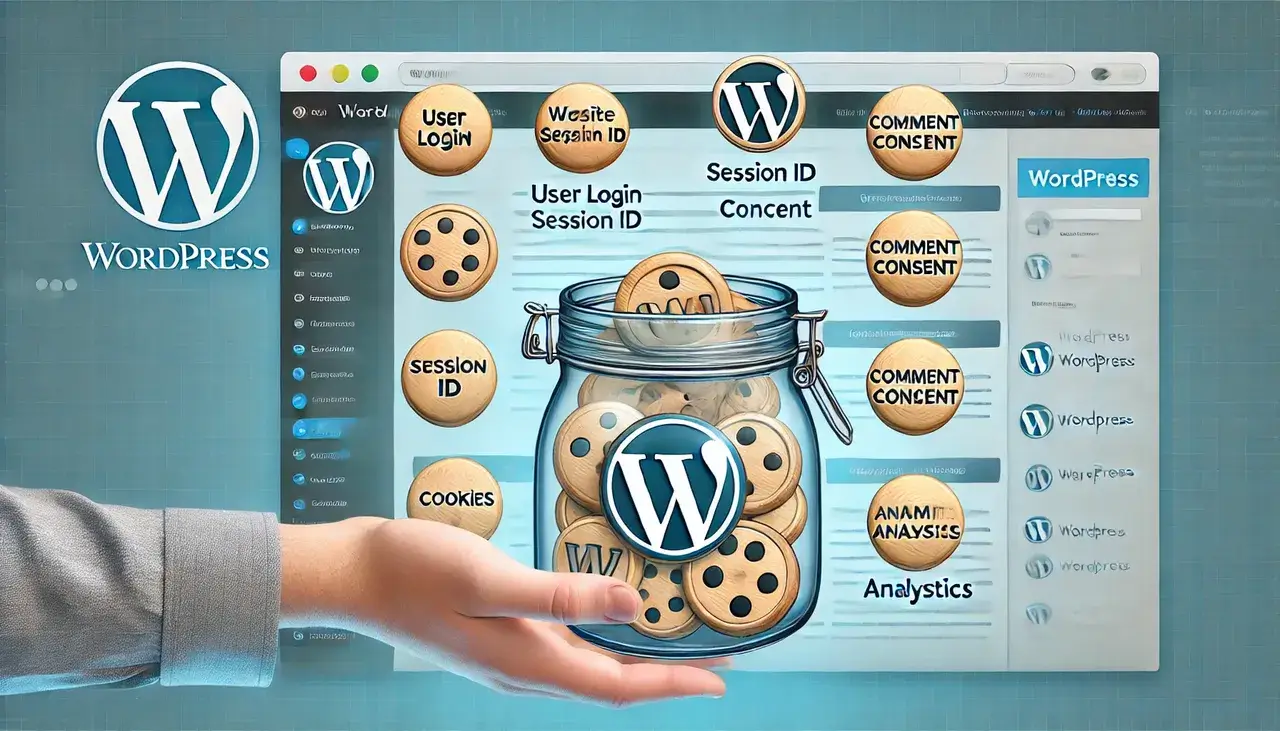Cookies

In the realm of website development, cookies have become an integral component in providing a tailored browsing experience for users.
These small text files store temporary data related to a website on a user’s computer, allowing for user authentication and comment functionality in the case of WordPress.
Furthermore, third-party plugins may also utilize cookies for a variety of purposes.
However, it is important for website owners to navigate the legal landscape surrounding cookies, as certain countries require disclosure of cookie usage and tracked information.
By understanding the intricacies of cookies in WordPress, website owners can ensure compliance with privacy laws and implement effective privacy measures.
Summary & Key Takeaways
Hide- Cookies are small text files that temporarily store website-related data on a user's computer.
- WordPress uses session cookies for user authentication and comments cookies for storing user information for future comments.
- WordPress plugins can set their own cookies for personalization and specific functionalities.
- Website owners should comply with privacy laws by adding a privacy policy page, using a cookies notification plugin, and checking plugin compliance for cookie laws.
What is Cookie? The Basics of Cookies in WordPress
The basics of cookies in WordPress encompass the generation of two types of cookies, session cookies and comments cookies, which store user authentication details and user information for future comments, respectively.
Session cookies are created to authenticate users and grant them access to specific areas of a website.
These cookies expire after 15 days, ensuring a secure and controlled user experience.
On the other hand, comments cookies are used to remember user information, such as their name, email address, and website URL, so that they don’t have to re-enter this information every time they want to leave a comment on a WordPress site.
Cookie management in WordPress is crucial for maintaining user privacy and complying with relevant laws and regulations.
Implementing cookie consent in WordPress involves using plugins or custom code to inform users about the use of cookies and obtain their consent before any cookies are set.
This ensures transparency and gives users control over their personal data.
How WordPress Utilizes Cookies
WordPress utilizes cookies for various purposes, including user authentication and comment functionality, with session cookies storing authentication details and comments cookies retaining user information for future comments.
These cookies play a crucial role in providing a personalized browsing experience on WordPress websites.
To further understand the common uses of cookies in WordPress, a table can be used to present the information in a concise manner:
| Purpose | Description |
|---|---|
| User Authentication | Session cookies store authentication details, allowing users to stay logged in. |
| Comment Functionality | Comments cookies retain user information for future comments. |
| Personalization Features | Cookies are used by plugins to offer personalized opt-in forms and favorite posts. |
Managing cookies in WordPress websites is essential to ensure compliance with privacy laws and provide transparency to users.
Website owners should add a privacy policy page and use a cookies notification plugin to inform users about the use of cookies.
Additionally, checking plugin compliance with cookie laws is necessary.
It is important to note that cookies can track user information and may be shared with third-party advertising platforms.
Therefore, adhering to laws such as the GDPR Law and ePrivacy Directive is crucial for website owners to obtain user consent and disclose information regarding cookies.
Cookies and Privacy Considerations in WordPress
Cookies and privacy considerations are essential in the context of WordPress websites.
They involve tracking user information and potential sharing with third-party advertising platforms.
Understanding the impact of cookie tracking on user privacy in WordPress is crucial for website owners to ensure compliance with cookie laws and regulations.
Here are some key points to consider:
- Cookie tracking can have significant implications for user privacy in WordPress. It allows websites to collect and store information about users’ browsing behaviors, preferences, and personal data.
- Compliance with cookie laws and regulations is vital for WordPress websites to protect user privacy rights. Different countries and regions have specific guidelines that website owners must follow, such as the GDPR Law in the European Union.
- Website owners should take steps to ensure compliance with cookie laws. This can include adding a privacy policy page, using a cookies notification plugin, and checking plugin compliance for cookie laws.
